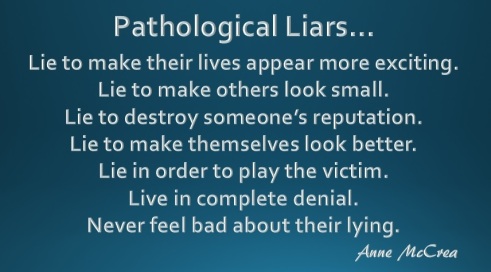
We don’t intentionally set out on a mission, whatever it might be, with the intent of being rejected. Rejection doesn’t feel good. But for the unemployed, the sting of rejection is all too familiar. And when that sting is added to the stress of trying to make ends meet, one more rejection letter can easily become the straw that tips the scales in the wrong direction.
You have the power to change those scales, to tip them in your favor. Easier said than done? Absolutely! But, doable all the same.
Your Story
I receive a lot of interesting and touching emails from my readers, but recently a story shared by one particular reader really stuck with me. As personal as it was to its author, it could’ve been written by any number of unemployed and frustrated job-seekers who share the same story.
I’ve edited the email only as needed to protect the identity of its author so that I can share it with you. (The bold emphasis is mine, not the author’s):
Hello Lynda,
This is regarding your blog post on job rejection
I am currently in my final year of studying electrical engineering at university and all throughout this year I’ve been applying for graduate positions at so many different companies (local and overseas). I’ve had a few phone interviews and even a couple of face to face interviews but in the end every application I’ve submitted has ended in failure with all rejections. I got a rejection from an engineering consultancy today which said: “Thank you for the time you have taken to participate in our Graduate Recruitment program. We were very impressed with the quality of information you supplied in the interview and your commitment towards your career. It has been a difficult decision-making process for us and we regret to advise that we will not be taking your application further. You are welcome to keep in contact with us as this may not necessarily be the only opportunity for you to work with us. We wish you all the best in securing a graduate position.”
This felt like a nail on the head. I really wanted the job. During the interview I might have got one or two technical questions wrong which the interviewers asked me and I also felt as if the whole interview was rushed…as if the interviewers just wanted to get it over with and send me out the door as quick as possible. Even then I was still optimistic that I would progress with the application. Guess not.
You talk about being realistic and not bringing emotion into it but I just can’t seem to do it anymore. I’m sick and tired of receiving these rejection emails and my inbox is full of them.
I’ve always wanted to do engineering since I was in high school and I thought it will be fairly simple to get a job with the degree. I’ve now realized how wrong I am.
What hurts even more is how mostly all of my fellow engineers who are in my class at university have jobs for next year sorted. I don’t know how they are the ones that get selected from thousands of applicants. They have gotten jobs in big companies. One of them even got rejected by a company and then a few days later got a call from them saying that they’ve been hired. I don’t think I’ll ever be that fortunate. I also don’t believe these guys are suited to those roles much better than I am. I’m usually honest with everyone but now when I tell the guys who have a job already that I’ve been rejected by a company I feel as if they get pleasure from hearing it. I just don’t like talking with them anymore as I feel left out.
Because I can’t get a job I keeping having thoughts about doing a Masters or PhD but even after that I don’t know if I’ll be able to get one. Right now I’ve got no motivation at all to keep applying because I just keep getting rejected regardless of how much effort I put into it. Everyone I know at my age has jobs. I don’t know what’s wrong with me and don’t think I’ll ever get a job. My parents have always struggled financially and I don’t want to rely on them anymore. I feel as if I’ve let them down big time.
Sorry about the sombre/negative feeling of this email but I just felt I needed to write to someone who might be able to understand what I’m going through.
When Dreams Meet Reality
Yes, I do understand what this reader — and so many others like her — ar e feeling. I’m well aware of the pressing nature of finding employment — and it is a battle being waged by far too many of us for far too long.
e feeling. I’m well aware of the pressing nature of finding employment — and it is a battle being waged by far too many of us for far too long.
College graduates who, more than anything, are set to make their mark on the world are returning home to parents who are already financially taxed to their limit. The young and ambitious dreams of too many college graduates are replaced by cold reality. Many of these graduates are our children.
Far too many young families in the infancy of living their American Dream suddenly discover that for them, too, the dream is dying. These are families with houses which have yet to settle and children for whom they planned to give every advantage. Unlike the generation before them, these Mom’s and Dad’s no longer worry about whether they are over-filling the calendar with after-school activities that help a child succeed later in life. The fact is, they can barely squeeze school supplies out of the budget, much less piano lessons or the fees and supplies needed for gymanstics, soccer, football, or any other self-esteem building venture.
The middle-aged are no less effected. Issues such as divorce, illness, and aging parents add to the stress and financial burden. Savings and retirement plans are cashed in, credit ratings plummet, and for them, too, it’s a matter of survival.
As the bills and the rejection letters pile up, exactly how does one maintain a positive attitude and keep his or her spirits high and healthy when there is seemingly nothing about which to smile?
The Best of You
The first sentence of my favorite nonfiction book is, “Life is difficult.” Truer words were never written.
Few things are more frustrating than finding oneself involuntarily anchored, seemingly unable to reach the sea of opportunity that is outstretched before us. What we want in life is so vivid to us that we can taste it, as one tastes the salt in the sea’s breeze — yet we have no idea how to unchain ourselves from our current reality.
frustrating than finding oneself involuntarily anchored, seemingly unable to reach the sea of opportunity that is outstretched before us. What we want in life is so vivid to us that we can taste it, as one tastes the salt in the sea’s breeze — yet we have no idea how to unchain ourselves from our current reality.
We cannot change the fact that life is difficult, but we can change how we perceive the difficulty of life.
Whether this period of economic instability and high unemployment is the catalyst for your first real battle in life, or whether you are a veteran, it is important to obtain and maintain an emotional balance. Otherwise, the stress and struggle will get the best of you.
The “best of you” is what you need to present to a potential employer when you meet for an interview. If you walk into the room with the attitude that you “can’t” get a job, that you’ll “never” succeed, well, you are right. You won’t.
If you don’t believe you are the best, how can you convince an employer that you are the best candidate for the job? If you don’t believe that you can work your way through the reality that life is difficult, then you will forever stand at the shore getting pummeled by the rising tide and crashing waves that come your way.
Change Your Routine
We all reach a point of debilitating frustration. Some of us are able to drive ourselves out of it quickly. Others get stuck.
 Like a car stuck in the mud, the only way to shake it free is to change your technique. Simply pushing on the accelerator with nothing more than an absolute desire to move forward is a technique that only works for a lucky few. Most of us have to do more than simply hope and push harder.
Like a car stuck in the mud, the only way to shake it free is to change your technique. Simply pushing on the accelerator with nothing more than an absolute desire to move forward is a technique that only works for a lucky few. Most of us have to do more than simply hope and push harder.
Sometimes you simply need to change gears. Other times, you need the help of someone who has the tools you lack or who can help stear you into the clearing.
 And when you’re really buried in deep, an entire team of people (affectionately referred to as a “network” in the business world) is the fix.
And when you’re really buried in deep, an entire team of people (affectionately referred to as a “network” in the business world) is the fix.
Regardless of your needs, you won’t get out of the rut until you make a change.
Yesterday I received a phone call from a young lady in distress. Through tears she explained how she was spending the day in bed, again, as she’d done for the past 5 days. She lives in a small town where jobs are scarce in the best of times. She lost her last job after an illness prevented her from working — an expensive illness that added to her debt and lowered her credit rating.
Our conversation went something like this:
“I hate my life, lying in bed like this, day after day, doing nothing.”
“Then get out of bed.”
“For what? There’s no reason! I have nothing to do.”
“If you hate it, isn’t that reason enough to stop doing it?”
[silence]
I continued, “What are you doing to change your situation?”
“What can I do? I’ve applied for every job in town!”
“Well … if you could do anything you wanted to do to earn an income, what would it be?”
“I don’t know.”
“That’s your real problem, then. It’s time to change direction. Make a decision about what you truly want out of life, decide what is needed to make it a reality — and then get busy making it happen.”
Like the reader who has not yet found an engineering job, my caller found herself stuck in an emotional black hole. And the best and fastest way out of that hole is to make a change.
Make a Change
If what you are doing isn’t working, why keep doing it? Make a change.
So, what does change look like for the unemployed? What does it look like for the unemployed engineering student who, unlike the young lady hiding under her covers, already knows what direction she wants to head? What kind of change might work for the senior account executive facing foreclosure, or the young family who just signed up for food stamps?
Here are just a few possibilities:
Change Your Sales Strategy
I often talk about the importance of building rapport with the person in charge of hiring. You have to be more than a résumé. If you leave the interview without building rapport, you will not get the job. Building rapport is easier for some than it is for others, and this often explains why someone else got the job for which you were perfectly qualified. If you have a hard time building rapport with strangers in a way that feels natural and comfortable, a change in your approach is worth a try.
A job interview typically involves a candidate attempting to sell himself to the interviewer. In essence we say, “Buy my skills and abilities because I’m worth it.” But in truth, “you” (as a product) are not much different from the other 200 “products” from which the employer must choose.
Instead of trying to sell someone on your skills and abilities, face your next interview as a buyer, not a seller. Ask pointed questions of your interviewer that answer the bigger questions: Is this the job for you? Is this company good enough for you? Will it meet your needs?
Going in as a buyer rather than as a seller changes the dynamics. Instinctively but not consciously, the interviewer will feel as if she needs to win you over, not the other way around. It’s human nature. Your interviewer will instinctively feel the difference in the energy in the room, and she will be impressed by you without necessarily knowing why. You will be remembered. And that’s a step in the right direction.
Stop Job Searching
I’ve written about this before. We know that by the time job openings reach job boards, most of them are filled. Often, by the time a cattle-call of interviewing is done for the bigger companies, they already know who they intend to hire. So why do we keep wasting our time sending out résumés in response to job board announcements? (I’m just as guilty of this, having wasted nearly a month doing the same thing after my recent layoff.)
It’s time to be proactive rather than reactive. Applying for a job that is announced to the world is reactive: You react to the job notice. But going after a job that may or may not even exist yet is proactive. Here’s how:
 Choose an employer for whom you would love to work. Don’t worry about whether there is a vacancy for which you are qualified. Learn everything you can learn about the company. Network with employees, both online and in person. Hang out at the coffee-house nearest to the employer. Have lunch frequently at the nearest sandwich shop. Go to Happy Hour at the same bar that employees stop in after work. Become a part of the picture (at arm’s length; not as a stalker!) that you hope to someday formally join.
Choose an employer for whom you would love to work. Don’t worry about whether there is a vacancy for which you are qualified. Learn everything you can learn about the company. Network with employees, both online and in person. Hang out at the coffee-house nearest to the employer. Have lunch frequently at the nearest sandwich shop. Go to Happy Hour at the same bar that employees stop in after work. Become a part of the picture (at arm’s length; not as a stalker!) that you hope to someday formally join.
Then — when you feel comfortable and sufficiently “in touch” with the environment of the company — make your move. Set up an appointment with someone outside of HR but high enough in the food chain to have some bite. If you’ve been lucky, this may be someone you met at the local sub shop, or someone who at the very least recognizes you when you meet.
All you need is 10 minutes of her time.
And when you get those 10 minutes, use them to interview her — not to overtly sell yourself. Explain how passionate you are about becoming an engineer (or whatever your chosen profession might be). Remember: It’s about rapport building! Tell your story — the story of “who you are” and why you are so passionate about the industry. Explain that you are seeking to find “the best” company for which to work, that you don’t want to settle for “just a paycheck”, because once you commit to an employer, you are “all in” — and you don’t want a losing hand.
Don’t ask if they are hiring. Don’t ask if they have a position for you. Don’t leave your résumé unless you are asked for it. But DO leave a business card. (Employed or not, you should carry a contact card at all times!)
And DO ask for her email address:
“Thanks for all of your help, Jane. I really appreciate it. May I have your email address in case I have any more questions?”
A few days later, send a personal email:
“It was such a pleasure to talk with you, Jane. I’m even more impressed with ABC Co. The company is fortunate to have a Director with the dedication and loyalty that you clearly have, and that is exactly the type of leadership I hope to find when I start working. Again, thank you!”
Ten days or so later, send another note or make a phone call:
“Jane, I’m going to be in the area on Tuesday. Do you have any plans for lunch? I have about an hour to kill between appointments.”
And so on. The idea is to build a connection — a real connection.
This approach takes much more time than it takes to attach a résumé to a canned cover letter and click “send”, but it is a worthwhile investment of your time. Just think back to 3 months ago: How is your situation any better now than it was then? 
How each of us handle stress is as varied as are we. But it has to be handled — and it’s up to you to do whatever is necessary to handle it in a healthy, balanced manner. Whether you can push your way out on your own, or whether you require the assistance of others, don’t overlook its importance. After all, how you handle the stress of rejection and other life difficulties, and how well you use the resources available to you to turn lemons into lemonade, is not only critical to your personal happiness, it matters to a prospective employer.
Employers want to hire people who go above and beyond the norm, people who exude a certain energy that makes others feel comfortable in their company, and people who demonstrate (not just state) a level of proficiency or expertise from which the company will benefit.
When you face repeated rejection, turn the sting of it into the momentum you need to make a change. If you bury yourself in doubt, if you question what makes someone else “better” than you, you do yourself no favors. Objectivity must take the place of subjective self-doubt.
The person who got the job believed in himself. He established a connection by building rapport. He was memorable, in a positive light, in a sea of forgettable résumés and interviews. The manner in which he achieved these things could have been any number of ways — there isn’t a magical forumla — but you can bet that he did achieve them.
Treat yourself kindly and fairly. Allow yourself a reasonable amount of time to wallow in self-pity, but then move on from it. Get busy. Make a change.
~Lynda C. Watts
You might also enjoy:
How to Deal with Job Search Rejection
Dealing with Employment Rejection: A New Approach
10 Tips for Staying Organized and Motivated During Unemployment
Importance of Attitude: Whiner or Winner?
Storms and Perspectives: The Value of Change in Hard Times
Want more? Click on the “Work” category in the sidebar for a full list of articles on the subject by Lynda C. Watts. And don’t forget to explore the other categories, too! Keeping it all in balance is the key to success, and Lynda knows exactly what it takes.
Have a question or a request? Email Lynda for a personal reply, or to have your topic addressed in an upcoming article.


 The electoral college will soon vote to elect the 45th president of the United States. While it is likely that they will elect Donald Trump, it is not guaranteed.
The electoral college will soon vote to elect the 45th president of the United States. While it is likely that they will elect Donald Trump, it is not guaranteed.




 When I was a child, “the news” was easy to define. Broadcast media was still in its relative infancy. There was Walter Cronkite who told us what was going on in the world and around the nation. I lived in Columbia, MO., home of one of the best journalism schools in the world, so the newscaster sitting in the anchor’s chair was always an unfamiliar face, a student who changed on a revolving basis. But the weather forecast was always delivered by a “friend,” Paul Pepper. Everyone knew and counted on Paul Pepper.
When I was a child, “the news” was easy to define. Broadcast media was still in its relative infancy. There was Walter Cronkite who told us what was going on in the world and around the nation. I lived in Columbia, MO., home of one of the best journalism schools in the world, so the newscaster sitting in the anchor’s chair was always an unfamiliar face, a student who changed on a revolving basis. But the weather forecast was always delivered by a “friend,” Paul Pepper. Everyone knew and counted on Paul Pepper. For truly in-depth news, we turned to the newspaper. Print media was a burgeoning industry. And, as it is today, the editorial section was clearly labeled.
For truly in-depth news, we turned to the newspaper. Print media was a burgeoning industry. And, as it is today, the editorial section was clearly labeled. For example, when the Carrier deal was recently reported, early reports included statements like, “This is clearly a major victory for the president-elect.” The hard news was that Trump negotiated a deal; the commentary was that it was a “major victory.” The reports I heard came primarily from field reporters who do a lot of reporting “on the fly,” so I was empathetic with the individual reporters, but I was also irritated.
For example, when the Carrier deal was recently reported, early reports included statements like, “This is clearly a major victory for the president-elect.” The hard news was that Trump negotiated a deal; the commentary was that it was a “major victory.” The reports I heard came primarily from field reporters who do a lot of reporting “on the fly,” so I was empathetic with the individual reporters, but I was also irritated. Some TV journalists — like JoyAnn Reid, Rachel Maddow, Lawrence O’Donnell, and Chris Matthews — are using their power and influence to truly hold Trump accountable — and they are doing it in a way that remains fair and honest under modern journalistic standards. Their respective shows are intended to be editorialized, but the commentary and discussions with guests are built around truthful, factual hard news.
Some TV journalists — like JoyAnn Reid, Rachel Maddow, Lawrence O’Donnell, and Chris Matthews — are using their power and influence to truly hold Trump accountable — and they are doing it in a way that remains fair and honest under modern journalistic standards. Their respective shows are intended to be editorialized, but the commentary and discussions with guests are built around truthful, factual hard news. When a truly intelligent journalist is tasked with the difficult job of going beyond the hard news and into the realm of commentary, the burden is much heavier, the responsibility much greater.
When a truly intelligent journalist is tasked with the difficult job of going beyond the hard news and into the realm of commentary, the burden is much heavier, the responsibility much greater.
































